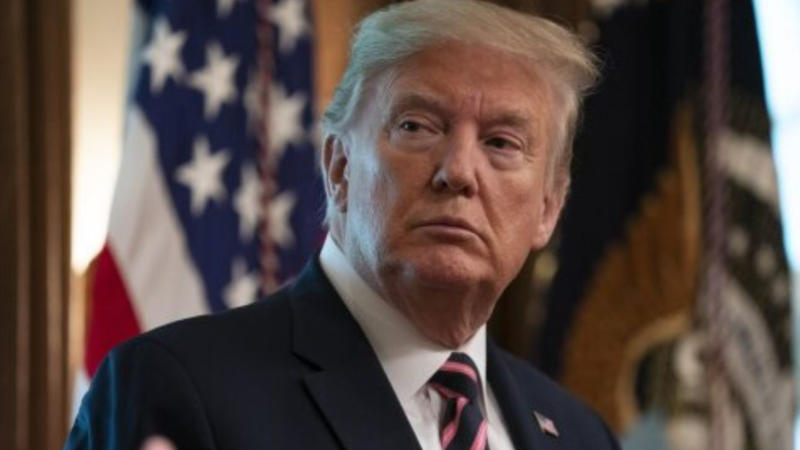Published 21:14 IST, October 15th 2024
Donald Trump’s economic strategy centers on tariffs and tax cuts
Budget analysts estimate that Trump’s proposed tax cuts could increase federal deficits by approximately $3.6 trillion to $6.6 trillion over the next decade.

Trump's economic agenda: Republican presidential candidate Donald Trump is focusing his economic agenda on tariffs and tax reductions, appealing to voters who prioritise economic issues as the primary concern for the 2024 presidential election.
Budget analysts estimate that Trump’s proposed tax cuts could increase federal deficits by approximately $3.6 trillion to $6.6 trillion over the next decade, depending on the specific proposals implemented. In contrast, Democratic candidate Kamala Harris’s plans for spending and tax breaks could lead to a smaller deficit increase or even a potential reduction, estimated between a $400 billion decrease and a $1.4 trillion increase over the same period.
Tariff proposals
Trump has suggested implementing broad tariffs of 10 per cent to 20 per cent on nearly all imports and significantly higher tariffs of 60 per cent or more on goods from China to stimulate US. manufacturing. On September 23, he announced a 200 per cent tariff on imports from John Deere if the company follows through with plans to shift production to Mexico, impacting the company's stock value.
This was the first instance where Trump threatened tariffs against an agricultural equipment manufacturer, previously limiting his comments to the automotive industry. During a speech on October 10 in Detroit, he reiterated his intention to impose a 200 per cent tariff on all vehicles imported from Mexico and mentioned offering research and development tax credits to US.-based manufacturers.
However, the National Retail Federation, which represents major retailers like Walmart, opposes these tariffs, warning they could lead to renewed inflation. A recent Reuters/Ipsos poll indicates that a slim majority of US. voters support Trump's tariff increases, particularly against China.
In his Detroit address, Trump stated that, if elected, he would initiate the renegotiation of the North American free trade agreement with Mexico and Canada to address concerns related to Chinese vehicles.
Tax cut plans
In early September, Trump pledged to reduce the corporate tax rate from 21 per cent to 15 per cent for companies manufacturing in the US. He previously proposed cutting the corporate tax rate to 15 per cent, but this new promise ties the reduction to keeping jobs domestically. During his presidency, he had already reduced the corporate tax rate from 35 per cent to 21 per cent.
Elimination of taxes on overtime and tips
On September 12, Trump promised to eliminate taxes on overtime pay as part of a broader tax reform initiative. He also proposed legislation to stop taxing tips, aligning with a similar commitment made by Harris. Currently, employees must report tips as taxable income. Additionally, Trump has pledged to exempt Social Security income from taxation.
Extension of tax cuts
Trump aims to extend the individual tax cuts he enacted in 2017, which would reportedly lead to a revenue decline of approximately $3.3 trillion to $4 trillion over ten years.
Addressing double taxation for citizens abroad
Trump has committed to reducing taxes for US citizens living overseas, although he has not provided specific details. American citizens abroad are required to file various tax returns and pay estimated taxes similar to those residing in the US.
Ambiguous SALT deduction proposal
On September 17, Trump hinted at restoring the state and local tax (SALT) deduction, which had a $10,000 cap imposed by his 2017 tax cuts, predominantly affecting high-tax states like New York. It remains unclear whether he intends to eliminate this cap.
Deduction for generator costs
In response to natural disasters, Trump proposed allowing tax deductions for home generators purchased in affected states between September 1, 2024, and August 31, 2025.
Beyond tariffs and tax cuts, Trump has vowed to support the oil and gas sector by promoting new pipeline projects and reinstating fracking on federal lands. On September 24, he expressed intentions to revive oil and gas drilling leases in Alaska’s Arctic National Wildlife Refuge, which were cancelled by the Biden administration.
He also mentioned reconsidering the $7,500 tax credit for electric vehicle purchases, which he sought to eliminate during his presidency before Biden expanded it in 2022. In his Detroit speech, Trump indicated he would propose making interest on car loans tax-deductible and suggested capping credit card interest rates at around 10 per cent during a rally in New York on September 18.
(With Reuters Inputs)
Updated 21:14 IST, October 15th 2024